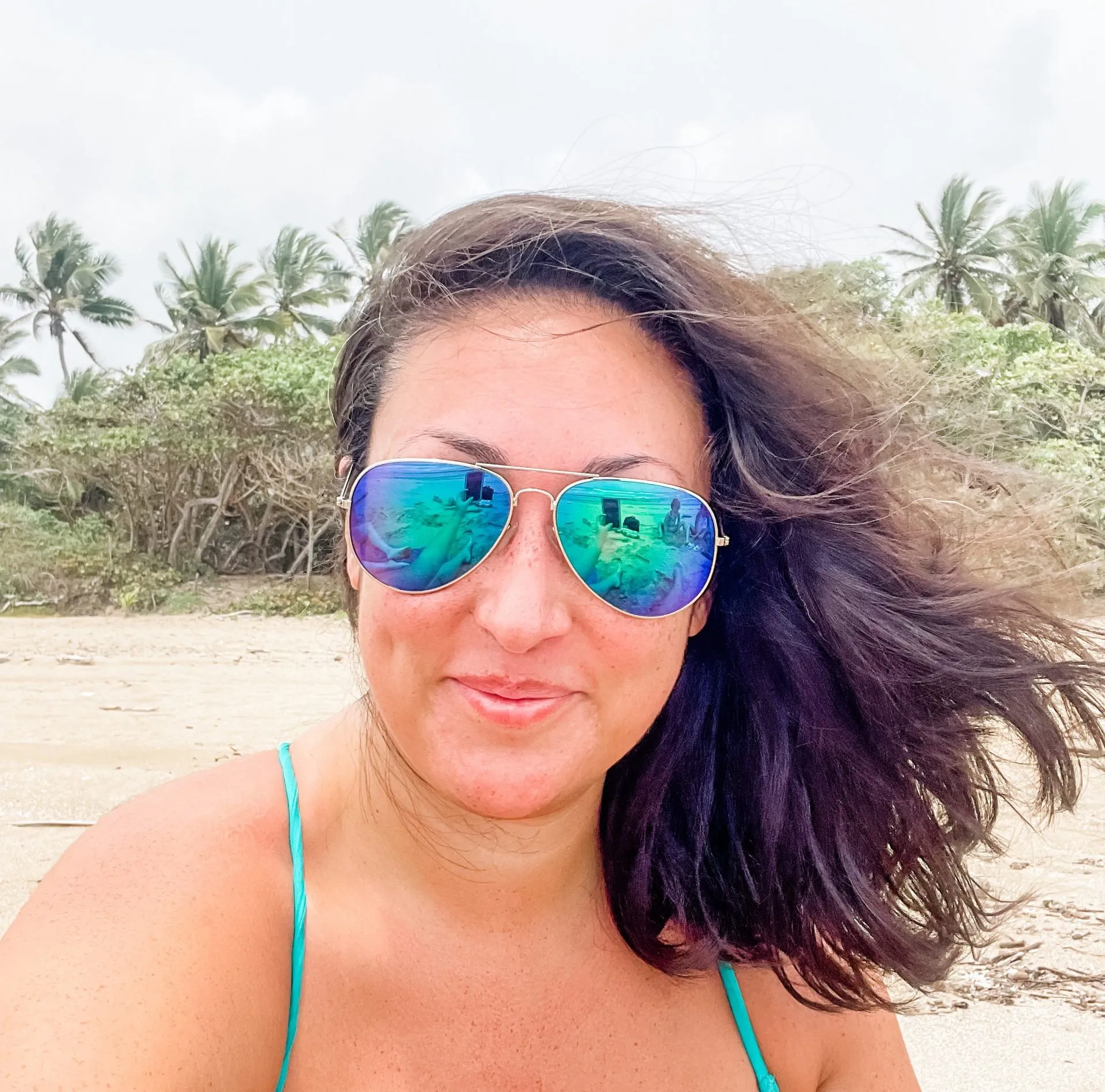My family has been moving slowly around the world for the last several years. First we were in a Spanish speaking country, then we lived in Japan for a couple years, and next we will move to a Portugal. We are always looking for the best way to learn vocabulary in the foreign language of our host country.
The first ten things we try to learn in every language:
- Hello, Good Day, Greetings
- Yes No, and Maybe
- Thank You
- Apologizing
- Asking About Price
- Restaurant Phrases About Making a Reservation or Modifying Meals
- Directional Phrases to Tell Taxies or Ask About Locations
- Weather Related Pleasantries
- Ordering Coffee
- Giving Compliments
Your best bet to learn vocabulary in a foreign language is to learn by using it. Saying words in your head is not the same thing as practicing by pronouncing it.
Skip to:
- What to Learn After Yes
- Learn Vocabulary
- Cultural Nuance
- Vocabulary Learning Mistakes
- Expanding Vocabulary
- Progress and Plateaus
- Learning as a Lifestyle

Learning Local Agreement Phrases
When you’re attempting to learn a new language, grasping local agreement phrases is a great first step. These phrases allow you to align with native speakers on common ground, often times leading to natural and fluid conversations. It’s one of the best ways to learn vocabulary in a foreign language because it marks you as someone who has a deeper understanding of the language beyond just vocabulary and grammar rules.
Why focus on agreement phrases?
- They are frequently used in daily conversation.
- Knowing these phrases can help you navigate social situations more gracefully.
- They demonstrate your cultural awareness and respect for the language’s nuances.
To effectively learn agreement phrases, prioritize phrases that are most commonly used among native speakers. Language learners benefit from practicing these phrases in context, which boosts their practical application in real-life scenarios. Interactions with native speakers or engaging in language exchange can be particularly valuable, as they offer a platform to use and receive feedback on these phrases.
Incorporate agreement phrases into your target language study routine by:
- Listening to them in natural contexts (e.g., movies, TV shows).
- Repeating them in appropriate situations.
- Writing them out to reinforce memory retention.
By focusing on local agreement phrases, you enhance your ability to connect with native speakers and enrich your language learning experience. Remember, you’re aiming not just to learn a new language but communicate in the native language in real life situations.
Why ‘Yes’ Isn’t Enough
When learning a foreign language, keep working on learning new vocabulary words. However, simply agreeing or nodding along in conversations isn’t the best way to learn vocabulary foreign language. You need active engagement with new words to fully assimilate them into your usable lexicon.
Engage Actively With New Vocabulary
- How to ask About Individual Words: Learn how to ask a native speaker what a particular word means in the foreign language.
- Practice with Real People: Chatting with native speakers exposes you to a range of colloquial terms and phrases.
- Incorporate Words in Real Life: Write a diary entry or messages in your new language, integrating new vocabulary contextually.
Expand Beyond Single Words
- Learn Phrases, Not Just Words: Understanding how words function in sentences gives you a practical grasp of usage.
- A Day in the Life: Make sure you have example sentences for each person you typically encounter in your day, such as your neighbor, grocery clerk, waitress, or a person walking their dog past your house. Practicing with real life people is the most important thing for integrating into the culture.
- Use Words in Various Contexts: This aids retention and helps in recognizing subtle differences in meaning.
Interacting with real people and applying words in different scenarios engrains the vocabulary deeply. Ensure you’re not just passively listening but actively using the language. Use different ways to make your learning journey fun by using your language skills the next time you hit the town.

Best Ways to Learn Vocabulary in a Foreign Language
Developing a robust vocabulary is crucial to mastering a new language. The best way to learn vocabulary in a foreign language involves a combination of techniques to recognize, understand, and retain new words.
Beyond the Basics
Language Skills Foundation: Begin by understanding common words to create a solid foundation for your language skills. This initial step provides the context needed to make sense of more complex vocabulary.
- Spaced-Repetition Programs: Employing spaced-repetition programs like Anki can enhance your ability to remember vocabulary long-term.
- New Words in Context: Learning new words within the context of phrases or sentences aids in retention and practical usage.
- Simple Language: You will get better results in real life communication if you have diverse vocabulary instead of focusing on conjugation or formality nuances.
Practical Tips and Tools
Effective Learning Tools
- Flashcard Apps: Utilize flashcard apps for a great way to practice and test your memory of foreign vocabulary.
- Mnemonic Devices: Create mnemonic devices to link unfamiliar words with familiar concepts, improving recall.
- Gamified Apps: Popular programs like Duolingo and Rosetta Stone are fun ways to learn lists of words.
Vocabulary Learning Strategies
- Daily Practice: Make it a habit to learn and review new words daily. Regular exposure is key to vocabulary acquisition.
- Language Learning Tips: Interact with native speakers or consume media in your second language to reinforce learning.
- Multi-Task Listening: Flex the brain area that learns language by listening to audio books or podcasts as part of your learning process.
Path to Native Tongue Language Mastery
Personalized Learning Plan:
- Crafting Your Own Flashcards: Personalize your learning by making your own flashcards tailored to your learning style.
- Tailoring Language Learning: As a language learner, discover what methods resonate with you for the most effective way to absorb and remember vocabulary.
- Reading: If you are a visual learner than letting your eyes get used to the written word of your target language can be very helpful.
The journey to language mastery is unique to everyone. Experiment with different tools and strategies to find what works best for you.

Also Read:
Examples from Different Languages
When exploring the best way to learn vocabulary in a foreign language, immersing yourself in various contexts is key. TV shows, for instance, can provide you with a range of colloquial terms and phrases. Watching a Spanish series like “La Casa de Papel” can familiarize you with dialogue and expressions in real-life situations.
If you enjoy anime, you might pick up Japanese vocabulary by watching shows like “Naruto”. Here’s an example sentence from the show that introduces common words: “ナルトは忍者になりたい” (Naruto wants to become a ninja). With each episode, you incrementally expand your vocabulary within exciting narratives.
Utilizing different methods to keep learning engaging is an effective strategy. For French, apps like Duolingo offer gamified lessons that cover words and phrases catered to everyday scenarios. Alternatively, reading French books integrates new vocabulary with context, enhancing your understanding and retention.
The best way to learn vocabulary in a foreign language is by combining these methods with consistent practice. Tailoring activities to your interests ensures that learning remains a joy rather than a chore. Your language journey will be as unique as the words you learn along the way.
Understanding Cultural Nuance through Vocabulary
When you’re exploring the best way to learn vocabulary in a foreign language, it’s essential to grasp the cultural nuances behind words. Language learners often find that understanding the context in which a word is used can reveal much about a society’s values and social norms. Here are some ways to deepen your appreciation of these subtleties.
Watch Real-World Videos
Watching real-world videos is a fantastic strategy. You’ll hear how native speakers express themselves and the particular situations in which specific words are used. It’s a dynamic approach to perceive how language functions in different social and cultural settings.
In America you might push through a crowd by saying, “Excuse me.” But, in Japanese you would instead say, “I am being rude” しつれします. If you asked Google Translate to give you the Japanese version of excuse me, it would state すみません, which is better for getting attention from a a waiter or preceding asking someone a bothersome question.
Listen and Repeat
Pay attention to not just what is being said, but how it’s being conveyed. Imitate the intonation and emotion behind phrases to get a feel for their cultural significance. This practice will help you sound more natural and make your communication more effective.
Many times I don’t know the exact translation of a phrase, but I understand the context and usage. Hearing the mother tongue of the language you’re learning is invaluable for picking up subtleties that aren’t taught on vocabulary tests.

Explore Idioms and Phrases
Idioms and expressions often have historical and cultural backgrounds. By learning these, you become more adept at detecting cultural references that can completely change the meaning of a sentence. It’s an insightful peek into the mindset of the culture.
Linguistic nuances are the essence of communication that transcends mere words. By infusing your language learning journey with an understanding of these subtleties, you connect on a deeper level with the language and its people.
Mistakes to Avoid in Vocabulary Learning
When you’re exploring the best way to learn vocabulary in a foreign language, it’s good to know which pitfalls can hinder your progress. Falling into the trap of rote learning can lead to a quick forgetting curve. You may remember words for a day but then lose them just as fast. To prevent this, focus on integrating vocabulary into sentences and practical communication to reinforce long-term memory.
Short-term memory is unreliable for language retention. You may feel like you’re making progress, but without spacing repetition and meaningful use of new words, you’re likely to forget them. Make a habit of revisiting and using new vocabulary in different contexts instead of cramming sessions.
Putting in hard work without smart strategies can also be ineffective. You might be dedicating time to memorize lists, yet without context, these words won’t stick. Ensure every new word learned is tied to a vivid image, a relevant situation, or an emotional connection to improve recall. Avoid learning in isolation. Language is a social tool, so engage with native speakers or use language exchange platforms to practice and retain what you’ve learned.
Advanced Techniques for Expanding Your Vocabulary
Utilizing Music Videos for Language Acquisition
Immersing yourself in the melodic tunes of a language can be an effective and enjoyable method to enhance your vocabulary. Watch music videos in your target language and pay close attention to the lyrics. It’s a fun way to learn new expressions and slang that you might not find in traditional vocabulary lists.
Hermann Ebbinghaus and The Forgetting Curve
Familiarize yourself with the research of German psychologist Hermann Ebbinghaus, who studied the decay of memory over time. Ebbinghaus’s forgetting curve shows the importance of spaced repetition in vocabulary practice. Integrate his findings by reviewing words at systematic intervals to optimize retention.

Constructing a Memory Palace
Harness the ancient technique of the memory palace, a mnemonic device dating back to Ancient Greek times. Visualize a familiar place and ‘place’ new vocabulary throughout it. As you mentally walk through your palace, the words become easier to retrieve from your memory.
Tailored Vocabulary Lists
Craft personalized vocabulary lists focused on your language proficiency and interests. Prioritize learning words that are most relevant to your daily conversations and broaden your vocabulary by connecting new words with those you’re already familiar with.
Each time I run into a situation where I end up using a different word than the intent of my communication, I go look up the proper way to say what I want to express. The good news is that most things you want to say are able to be described in multiple ways. But, important things like medical terminology or contract language take a lot of time to learn.
Regular Vocabulary Practice
Consistency is key to mastering a new language. Integrate regular vocabulary practice into your routine using various tools like flashcards, apps, or integrating new words into your own speech and writing. This consistency is the best way to learn vocabulary in a foreign language as it promotes active usage and memorization.
Celebrating Your Progress and Overcoming Plateaus
Embrace Your Achievements
- Recognize every step forward in your language journey. Celebrating small victories keeps motivation high and makes the best way to learn vocabulary in a foreign language more rewarding.
- Share your progress with friends or language partners. Their feedback can provide encouragement and new insights.
- Make friends or join hobby groups that will expand your social groups and allow you to get away from only interacting with english speakers.
Navigating Learning Plateaus
- It’s natural to hit plateaus. When progress feels slow, it’s time to mix things up. Try new learning materials or methods to reinvigorate your interest and engagement.
- Reflect on your goals and the reasons behind your language learning. Reminding yourself of why you started can provide a fresh burst of enthusiasm.
- Challenge yourself to spend hours or days not using your first language and instead focusing on long term immersion.

Active Use and Consistent Review
- Engage in activities that reinforce your language skills and new vocabulary in various contexts. Whether through language exchange apps, short stories, or daily conversations, using your target language in real life is crucial.
- Revisit and revise your personal word list regularly. This helps transfer new vocabulary from short-term to long-term memory, enhancing your overall language proficiency.
The journey to mastering a new language is unique for each learner. Stay patient, stay curious, and let your passion for the language drive you forward.
Making Vocabulary Learning a Lifestyle
Incorporating vocabulary learning into your daily routine is the best way to learn vocabulary in a foreign language. Start by setting specific, achievable goals for each day. This could be as simple as learning five new words or phrases every day. Consistency is key, so make this practice a regular part of your daily life, like brushing your teeth.
Use Your Free Time Wisely
Your free time is a goldmine for casual learning. Listen to podcasts, songs, or watch movies in your target language. These entertaining methods can help you absorb new words without the feel of a traditional study session. Always keep a language learning app on your phone, so you can turn any spare moment into a learning opportunity.
Integrate with Technology
Language exchange apps are fantastic for bringing authentic conversation into your routine. Engage with native speakers who can offer immediate feedback and help enhance your vocabulary in a practical context. You’re more likely to remember new words if you use them in a meaningful conversation.
Surround Yourself with the Language
Immerse yourself by changing your phone or social media platforms to the language you’re learning. You’ll encounter common phrases and words on a daily basis, reinforcing your growing vocabulary in a natural setting. This steady exposure accelerates learning and integrates it seamlessly into your life.

Your Path to Vocabulary Mastery in a Foreign Language
When mastering foreign language vocabulary, consistency is key. Aim to integrate new words into everyday conversations and written communication. Utilize memory techniques such as flashcards and story-making with new vocabulary to cement them in your mind.
Identify and prioritize learning the most common words in your target language. These core words are the building blocks of fluency and will serve you well in a variety of contexts. Engage with language apps for gamified learning that keeps you motivated and aids retention.
In your journey with foreign words, don’t shy away from utilizing all available resources. Language learners benefit from a mixture of traditional study methods and digital tools. The best way to learn vocabulary in a foreign language is by making learning a habit and surrounding yourself with the language as much as possible. Stay encouraged and interactive, and you’ll find your vocabulary expanding more naturally and swiftly.



Leave a comment